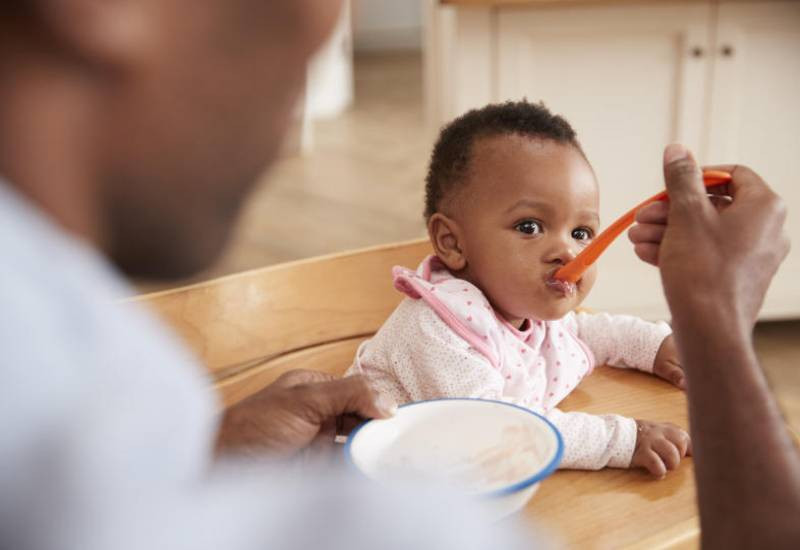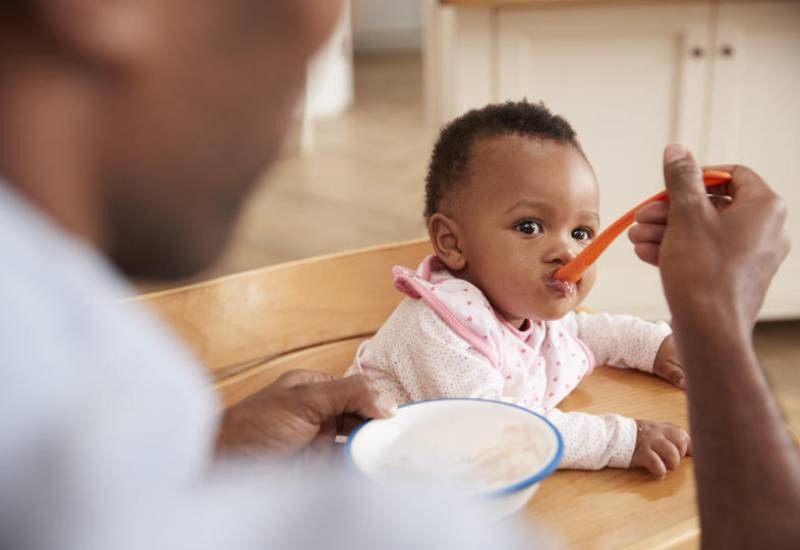
They say motherhood is a constant learning journey, and with it comes challenges that you somewhat have to manage and overcome. For first-time mothers especially, there is a lot of uncertainty as they try to figure out themselves and the little ones they birthed.
The first few months of feeding my son seemed easy, given that I exclusively breastfed him until he was six months old. However, when he turned five months, I started getting some jitters and anxiety, keeping in mind that I was going to wean him off in a few weeks.
Like every other decision I have made since I began this journey, I overthought the weaning process - what are the best foods to start with? Which fruits should I give him? Will he be allergic? - those are some of the questions that kept lingering in my mind.
And like most mothers, who have made Google their best friend, my first instinct was to seek advice from the internet, and I searched for probably any question that would pop into my mind. But the information I got was overwhelming - not to mention the contradicting views - which did not make my thought process less easy.
Nevertheless, it was not all meaningless, as I gathered some content that seemed prevalent on most sites, giving me a broader perspective of what was to come.
Be that as it may, many recommended talking to a paediatrician even after dishing out what looked like solid content. However, despite how practical it is to sort advice from an expert, not everyone can afford the luxury of visiting a paediatrician.
I appreciated the tips I got, but my thirst for what I was searching for was not quenched, so I switched to another fruitful platform for seeking information; social media.

The community groups on Facebook make it worth the while for people with similar interests to engage and share meaningful information on specific topics. For example, when I started feeding my baby porridge, I wanted to know which type was the best, so I asked my colleague, who referred me to a popular Facebook page for mothers.
I put up the question, and within minutes, answers started flowing from experienced mothers - some who seemed delighted giving me the information based on the 'welcome to motherhood' and 'you are doing a good job' comments.
Not to say the wealth of information was not overwhelming, but it brought the answers I was looking for closer to home.
It was different from when I Googled; the conversations felt authentic and practical, not to mention the advantage that most of the members are within the same locality and, therefore, even recommended where to acquire some of the things I needed.
However, as I scrolled through previous topics, I noticed some very contradicting statements from some members.
For instance, one mother wanted to know which greens were suitable for her seven-month-old baby, and some of the answers left me quite baffled.
For instance, I read spinach should not be given to a baby less than a year old - contrary to what I thought, given the many benefits - and that traditional greens were the best, while others opined the opposite.
What rattled me was that some of the women giving the information were either doctors or nutritionists and their contradictory statements left me a bit confused.
After introducing my baby to solid foods, he got constipated the first few days. I told a colleague that I wanted to feed my son pawpaw to see if it would help his bowel movement, but I was warned against it.
"Pawpaw is acidic and your baby might react to it," she said. But since I had made up my mind, I was going to give it to my baby; having done my little research, I fed my son pawpaw.
To my surprise, he pooped, which made me happy, but I kept hoping he won't react to it. And after a few weeks of including pawpaw in his diet and his bowel movement kept improving without getting any allergic reaction, I patted myself on the back, knowing I had made the right decision.
I am still introducing my son to different foods and fruits for him to explore, but his favourite seems to be ugali and stew, with pawpaw being his best fruit.
Throughout this process, I noted a few things about weaning off a baby, one being that it is okay to experience mixed emotions when weaning off. Still, take it easy on yourself and take the time to adjust to the new normal.
Also, babies are different. Most mothers in the Facebook community groups gave advice based on how their children responded to solid foods, hence the contradicting views.
This also goes for friends, family and colleagues. Still, ask for help when you feel stuck, and do not ignore the information given, as some of it might be useful to your specific needs.
Do your research, but do not let it engulf you to the point you second guess every move you make. Some of the information and recommendations you receive might not work for you due to reasons such as finances.
However, if you can afford expert opinion, like going to a paediatrician, then, by all means, do it. Ultimately, go for what will make the weaning-off process more comfortable for you and your baby.
Finally, a mother will always know what is best for their babies, having spent the most time with them and watching their behaviour growing up.
So let your baby explore the different types of foods, and in any case of an allergic reaction, you will identify it early enough and find the best possible solution.
 The Standard Group Plc is a multi-media organization with investments in media
platforms spanning newspaper print
operations, television, radio broadcasting, digital and online services. The
Standard Group is recognized as a
leading multi-media house in Kenya with a key influence in matters of national
and international interest.
The Standard Group Plc is a multi-media organization with investments in media
platforms spanning newspaper print
operations, television, radio broadcasting, digital and online services. The
Standard Group is recognized as a
leading multi-media house in Kenya with a key influence in matters of national
and international interest.


